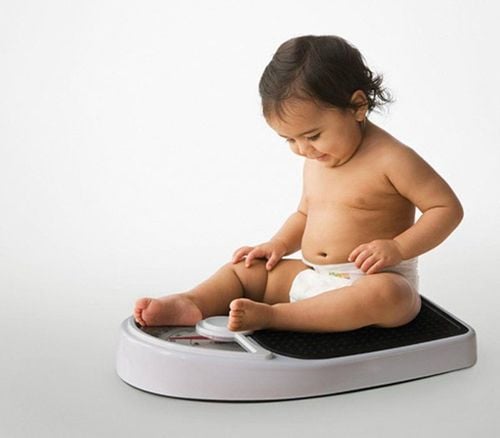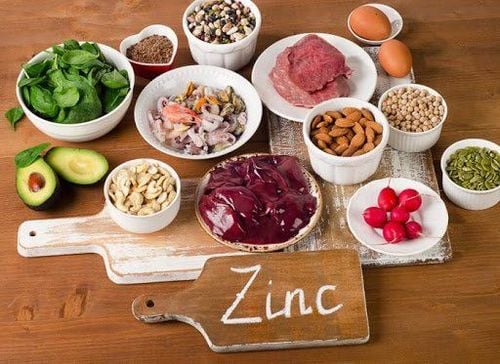Raising young children is not an easy task. It requires basic knowledge of nutrition and child development at different stages. A child’s growth is assessed by various factors and criteria, with physical development often measured by height and weight. So, what is the standard weight for a 15-month-old?
1. What is the ideal weight for a 15-month-old?
The body of a 15-month-old child undergoes significant changes. Their motor skills, learning ability, and emotional expression improve greatly.
The digestive system of a 15-month-old child is still developing, coinciding with the teething process. Typically, a child at this age will have around 11 baby teeth.
At this stage, concerns include the risk of rickets and stunted height growth due to calcium and vitamin D deficiency. Symptoms include delayed teething, hair loss in a circular pattern, poor sleep, and frequent night crying,...
Additionally, children may experience a loss of appetite, leading to slow weight gain and even the risk of malnutrition if they do not receive adequate nutrients.
According to the height and weight chart for children published by the World Health Organization (WHO), the standard weight for a 15-month-old child is as follows:
The standard weight for a 15-month-old girl is:
• Malnourished: If weight is below 7.7kg.
• At risk of malnutrition: If weight is below 8.5kg.
• Normal: Weight is around 9.6kg.
• At the risk of obesity: If the weight exceeds 10.9kg.
• Obese: If the weight exceeds 12.2kg.
The standard weight for a 15-month-old boy is:
• Malnourished: If weight is below 8.4kg.
• At risk of malnutrition: If weight is below 9.2kg.
• Normal: Weight is around 10.3kg.
• At the risk of obesity: If the weight exceeds 11.6kg.
• Obese: If the weight exceeds 12.7kg.
Therefore, if a 15-month-old girl weighs 7-8kg, she may be at risk of malnutrition or already malnourished, depending on her exact weight. If a 15-month-old boy weighs only 7-8kg, he is considered malnourished. In both cases, parents should take the child for a medical examination to determine the cause and find appropriate treatment.

2. What should a 15-month-old eat?
A 15-month-old child is still developing rapidly both physically and mentally, so their diet needs to provide enough energy for weight gain and sufficient nutrients for healthy growth.
Regarding meal frequency, children should have five meals a day, including three main meals and two snacks, and should continue breastfeeding. If the child has stopped breastfeeding, they should be given formula milk or fresh milk. Snacks should include fruits such as bananas, papayas, sapodillas, mangoes, oranges, as well as yogurt and cheese.
The daily food intake to meet the nutritional needs of a 15-month-old should include:
• Rice (for porridge): 120 - 150 g.
• Meat (or fish, shrimp...): 100 - 120 g and children should eat 3-4 eggs (both yolk and white) per week.
• 500ml of milk (if the child has stopped breastfeeding).
• Oil (fat): 20 - 30g (equivalent to 4 - 6 teaspoons of 5 ml each).
• Green vegetables: 50 - 80g.
• Ripe fruits: 100 - 120g.
To help your child eat well while ensuring sufficient nutrition, you should prepare food as follows: Cook a pot of well-cooked white porridge, then for each meal, take a portion into a small pot and add meat (such as beef, chicken, or pork), fish, shrimp, eggs, along with green vegetables, cooking oil, or fat.
To promote height growth, children should consume calcium-rich foods (such as crab, shrimp, cheese, yogurt) and iron, as well as zinc (such as meat, eel, heart, yogurt). In addition to a proper diet, you should encourage outdoor activities for sunlight exposure, which helps convert vitamin D and improve calcium absorption, thereby preventing rickets.
Additionally, ensure that children drink enough water, as their water needs are higher than adults (an average of 100 ml/kg of body weight per day). Especially in hot weather, they should drink even more water.
3. How to properly care for a 15-month-old?
• Encourage chewing: You should encourage your child to practice chewing food. If they prefer more extensive pieces, encourage them to chew, as many children over two years old still struggle with chewing even though others at this stage can do it well.
• Develop a structured eating plan: Most 15-month-old children prefer snacking over eating main meals. Therefore, you need to establish a structured eating routine to shape healthy habits for the future.
Children should be given three main meals and two snacks with healthy foods so that the baby's body can fully absorb the nutrients.
Establish good eating habits for your child by setting regular meal times. The ideal times for daily meals are lunch from 10 - 11 am and dinner at 5 pm.
• Suggested menu for a 15-month-old baby with adequate nutrients:
• Breakfast: Meat porridge, shrimp, toast, and vegetable soup.
• Lunch: Noodles, eggs and salad
• Dinner: Rice and meatballs (or fish) with vegetable soup.
• Notes during food preparation for children:
• Limit the use of sugar and salt in food. Encourage children to eat bland food instead of salty food, only about 1/4 teaspoon of salt should be given.
• Use vegetable oils such as soybean oil, sesame oil, etc., which are better than using animal fat.
• Cook porridge with grains, and let your baby practice eating soft-cooked rice.
• In addition, to protect your baby's health, you should:
• Feed and let your baby rest scientifically, avoid letting children play with children who have flu or some infectious diseases.
• Train your baby to wash their hands before eating and other useful habits. Don't forget to explain to help your baby understand the importance of what they do.

4. What can a 15-month-old baby do?
By the 15th month, the baby will have more complete skills, including:
• 15-month-old babies can stand and walk steadily. They will like to rummage and explore everything, every nook and cranny in the house.
• At this age, children also start to say clear single words and know how to call their parents. Therefore, you should play with your baby more and teach them to speak, remember and get acquainted with all objects.
• 15-month-old babies like to communicate with people around them. This is when the baby develops independence and forms the most obvious personal characteristics. The most obvious manifestation is that children become stubborn and disobedient. At this time, you need to gently explain and talk to your baby to understand more because the 15-month-old stage is when children can fully understand through the attitude of adults.
In addition, 15-month-old babies need 5mg of elemental zinc/per day for them to eat well, reach the correct height and weight standards, and exceed the standards. Zinc plays a role in affecting most of the biological processes taking place in the body, especially the process of decomposition and synthesis of nucleic acids, proteins, etc. When organs in the body are deficient in zinc, it can lead to some pathologies such as neurological disorders, irritability, etc. Therefore, parents need to learn about The role of zinc and instructions 1 for reasonable zinc supplementation for babies.
In addition to zinc, parents also need to supplement their children with other important vitamins and minerals such as lysine, chromium, B vitamins, 2 etc., to help them eat well, have a good immune system, strengthen resistance to reduce minor illnesses.
Please visit the Vinmec.com website regularly and update helpful information to take care of your baby and your family.
To arrange an appointment, please call HOTLINE or make your reservation directly HERE. You may also download the MyVinmec app to schedule appointments faster and manage your reservations more conveniently.
To arrange an appointment, please call HOTLINE or make your reservation directly HERE. You may also download the MyVinmec app to schedule appointments faster and manage your reservations more conveniently.








